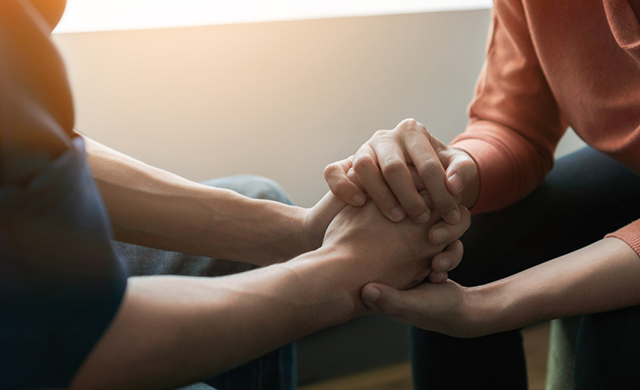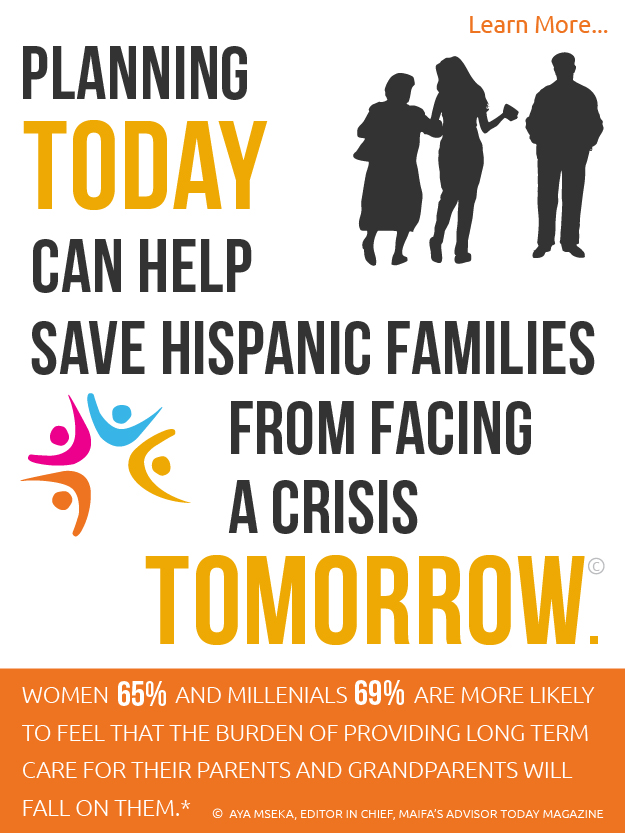
How to Know If Group Therapy Might Be Right for You
04/11/2019 06:00AM | 4233 viewsAfter about six months of individual therapy, Audrey A., then 28, felt like her progress had stalled. But she still wanted help working through a traumatic stalking incident that happened earlier in her life. “I chose group therapy to see if talking to others could help shine a light on things,” she tells SELF. “I went to be around people who were in [similar] situations so that I could see I wasn't alone.”
Being in the trauma therapy group helped Audrey feel understood and develop a deeper level of empathy, she says. According to experts, these are some of the best possible benefits of group-based therapy.
“Hearing from people who have had similar experiences [can have] value to an individual in ways that go beyond the context of one-on-one work,” psychotherapist Matt Lundquist, L.C.S.W., M.S.Ed, owner and director of Tribeca Therapy in New York City, tells SELF.
But how do you know if group therapy might be right for you? Read on to find out.
There’s a difference between group therapy and support groups.
You can find two overarching types of mental health support in a group setting, according to the Mayo Clinic. The general idea of both is to get people with similar problems or experiences together to process and move forward, but the set up of each is slightly different.
Group therapy, also known as psychotherapy groups, are led by therapists. A therapist guiding this kind of group usually regulates who can join, along with when it makes sense to introduce a new person into the mix.
Support groups, on the other hand, are typically led by people who have experience living with a certain condition or under specific circumstances (though in less common instances, a mental health professional might lead a support group). These people may or may not have training to facilitate this kind of gathering. Support groups are often more flexible than psychotherapy groups and generally allow people to drop in as they wish.
Some therapy and support groups meet for a set period of time—say 12 weeks—while others meet indefinitely. You can typically find group therapy and support groups for certain mental health issues, such as anxiety or eating disorders, as well as groups based on demographics, such as single women in their 30s.
Whether you go to a group led by a therapist or by a peer, connecting with others in a similar spot can be invaluable, the experts say. But group-based mental health support can provide other benefits too.
Group settings offer an opportunity to work on your relationships.
“Individual therapy is really about the therapist understanding your world from your perspective, and together going in to explore and heal pain your life,” Charlotte Howard, Ph.D., a licensed psychologist at Deep Eddy Psychotherapy in Austin, tells SELF. “Group [therapy] is more about you working on relational dynamics in real time.”
Ideally, this will help you work on things like how to practice active listening as others share their experiences, navigate differences with those whom you don't see eye-to-eye, and truly connect with others.
“You don't feel alone or like you are weird,” Howard says. “It helps to normalize that every person has their stuff.”
Hearing other people’s stories may help you see your life differently.
As other people share about their lives, it might cause you to have light-bulb moments about your own experiences. Maybe a group can help you pick up on patterns in your behavior that you haven’t noticed before. Or perhaps you’ll learn that something you think is trivial is a big deal to someone else, and with that knowledge, gain more compassion for others.
“It gets you outside of yourself,” Audrey says. She offers up the example of having depression and hearing another person talk about their experience with the mental health condition: “You see that depression is telling someone else really bad things, and you tell them, 'Don't listen to that, that's the depression talking!' and then you realize, “Wait, my depression told me that yesterday.’ ”
Group therapy or a support group can help you embrace vulnerability.
“In individual therapy, we try to get someone in their feelings because that's where the healing happens,” Howard says. For some people, it’s actually easier to do this in a group than one-on-one. Having a bunch of people welcome you, explain that you’re not alone, and reinforce your experiences might allow you to feel safe enough to let down your guard.
This vulnerability helped Audrey, now 35, get in touch with her feelings. “My emotions would drop in because of hearing someone else's story. It then allowed me to open up more about my…anxiety, off-and-on depression, and an altered way of living,” she says. “It allowed me to talk more in depth about my nightmares and the PTSD symptoms I had. It broke open my shell.”
Group support can be much less expensive than individual therapy.
Some insurance companies will cover group psychotherapy led by an actual therapist, but you should check with your provider to be sure.
However, even without insurance, group therapy is often cheaper than individual sessions. For example, Howard's rate for a 45-minute private session is $195, while a 90-minute group session with her is $60. So, if one-on-one therapy is out of your budget, group therapy may still be feasible.
Peer-led support groups aren't covered by insurance because they generally aren’t led by health care providers, Lundquist says, but they are usually free or have a lower cost than traditional and group therapy.
Group therapy and support groups can also come with potential downsides.
Other participants might call you out on, well, basically anything, Howard says, and they might lack the finesse of a trained mental health care provider. “It can be painful to see those things about ourselves,” Howard says. “Group therapy is a bit of a pressure cooker.”
Of course, any therapist you see should also bring your attention to any destructive or unhelpful tendencies you may have, but they go through training to deliver that information in a constructive way. This is one reason why expert-led group therapy may feel more comfortable than a support group solely made up of your peers.
On a related note, support groups that function without experts can have issues like interpersonal clashes, a lack of confidentiality, and people offering unhelpful advice, the Mayo Clinic says. Without an expert to help the group stay on track, these dynamics can get dicey. That can be true even with an expert in the mix.
When Audrey attended group therapy as part of a residential stay at a mental health treatment facility last year, she found it to be ineffective. “I felt like we were allowed to stew in our emotions or feel sorry for ourselves in a way that wasn't productive,” she says. “You can get to a point in group therapy where you roll your eyes at the person because you want them to move forward, but it's the same thing over and over again.” And if you sense people are feeling that way about you, it might stall your progress.
Finally, if you’re big on stability, groups that change regularly might throw you off. While you may be OK opening up if a new person joins every once in a while, it can be hard to do so if the people you've already build a rapport with don't show regularly. “Consistency of the group is important and ideal,” Lundquist says. “When you come and go, [it] doesn't just affect you, it impacts other people.”
Here’s how to tell if group-based support might be right for you.
If you’re aching to connect with people going through similar experiences or who have the same mental illness, group therapy or a support group might be beneficial. With that said, if you’re dealing with severe or persistent mental illness, individual therapy with someone who is trained and can focus all their attention on you might be best. In those types of circumstances, group therapy or a support group may be a good complementary option, but they might not be enough on their own.
Group-based mental health support can also be incredibly helpful if someone wants to work on their relationship dynamics, Howard says. If you have trouble receiving love, try to please everyone, repeatedly date partners who are emotionally unavailable, become angry with others easily, or have trouble with intimacy or commitment, some sort of group could make sense for you.
Of course, an individual therapist you click with can help you process all of these issues and more, but being in a group allows you to practice positive new habits in a (hopefully) safe environment. Ideally, this will empower you to incorporate them into the rest of your life.
Mental health groups may also be beneficial if you struggle with things like self-esteem and self-compassion, Howard says. In the best-case scenario, being with people who build you up, and also see how they view themselves, can help you foster a healthier relationship with yourself.
To find group-based mental health care, talk to your individual therapist or look online.
If you already have a therapist, they may be able to refer you to a group that might be a fit.
If you don’t have a therapist or they don’t have suggestions, you can search for group psychotherapists through online resources such as the American Group Psychotherapy Association and Psychology Today. You can also look for advocacy websites that speak to the condition or life circumstance you’re dealing with, the Mayo Clinic says. If it comes to it, you can try googling for the specific type of group therapy or support group you’d like in your area.
When you’ve found a good potential match, the Mayo Clinic suggests asking the leading therapist or facilitator questions such as:
- What are the confidentiality guidelines?
- Do you lead the group? What is your training like?
- What is a typical meeting like?
- How much does this cost?
Check out the Mayo Clinic’s full list of suggested questions, and don’t hesitate to ask any others that come to mind. Also look out for any claims that this group can “cure” you of any illness, along with fees that feel too high or any materials pushing you to buy a product or service—those are all potential red flags, according to the Mayo Clinic.
Once you’re satisfied with your research, try to give group therapy or a support group a few sessions before you make any decisions to stop going. “It's normal to be uncomfortable until you get used to it,” Howard says. “It's not necessarily easy to join a group.” If you think you’d benefit from group therapy, don’t let this challenge deter you.
“[Group-based mental health care] breeds empathy within yourself, and it opens your eyes to the amount of people who are going through things that you can connect with,” Audrey says. “It can really move you forward in life.”











Post your Comment
Please login or sign up to comment
Comments